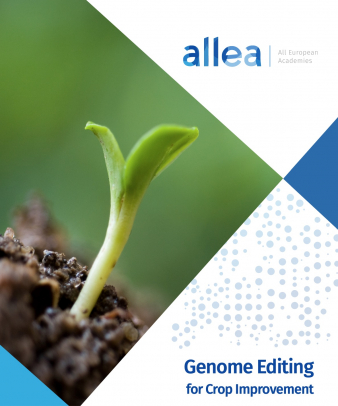In a relatively short period of time, genome-editing techniques have become an essential tool for our understanding of the genetic basis of biological processes and for biotechnological applications in many different fields. This is the case for crop breeding. The improvement of the plant varieties that are the base of world food production depends on the availability of plant populations that contain the largest possible variability in genes related to agronomic characters of interest. Genome-editing methods are novel because they provide a direct way to generate new variability in this category of genes. Examples of the use of these methods are increasingly being published worldwide and genome-edited varieties are expected to reach the global market at any moment, as the majority of countries have decided not to regulate them in a way different from other plant varieties.
Food in the European Union is the subject of a number of Directives and Regulations with the aim of preserving the safety of food offered to European consumers. In particular, the Directive 2001/18/EC regulates the access to the European market of food products containing genetically modified (GM) components, and currently. In the way that it is presently applied it imposes a high economic burden upon those who wish to apply for the introduction of GMO varieties. The ruling of the Court of Justice of the EU in case C-528/16 is interpreted by the European authorities to mean that genome-edited crops are subject to the provisions of Directive 2001/18/EC. If this is so, it may mean an important economic barrier to the research and use of the new varieties obtained by genome editing in Europe. It opens a number of questions on how to enforce the provisions of traceability and labelling or how to apply the existing regulations on intellectual property upon plants and plant varieties. Different options to solve the present impasse resulting from the ECJ ruling have been explored and proposed during the ALLEA-KVAB Symposium on ‘Genome Editing for Crop Improvement’ that was held in Brussels, in November 2019.


